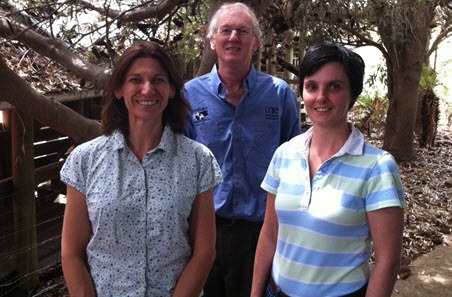Free water quality tests available
As part of a new project assessing the quality of feedlot drinking water, researchers from the University of New England (pictured) are offering free water analysis to the first 200 respondents of a short survey.

The water quality tests will be used as part of the research surrounding the quality of feedlot drinking water and its potential impacts on cattle health and production.
The most common water quality issues will then be evaluated to determine cost-effective treatment methods to minimise impacts on production.
The project is jointly-funded between Meat & Livestock Australia (MLA) and the University of New England (UNE), in consultation with Australian Lot Feeders’ Association (ALFA).
UNE and Premise are the service providers to MLA for the project, which is being led by UNE’s Dr Janelle Wilkes, Dr Fran Cowley and Professor Roger Hegarty.
About the survey
Lot feeders are invited to participate in the survey and provide water samples, which will be sent to a National Association of Testing Authorities-accredited laboratory for water analysis, with transport costs paid by the project.
The short survey of three questions should only take five minutes for participants to complete and no individual or feedlot will be identified by name in any publication of the results. Any personal details gathered in the course of the study will remain confidential.
“This is an ambitious project. We want to be able to, at one point in time, see where water quality is sitting across feedlots in Australia, particularly during this ongoing drought, which is seeing some feedlots having to use groundwater rather than surface water,” Dr Wilkes said.
“From this survey, we’re going to summarise the water quality parameters and for those above the national guidelines, we’ll conduct a cost-benefit analysis using three technologies to treat the water.
“From the surveys returned so far, it seems reverse-osmosis, shandying (mixing water sources) and chlorination are the most common treatments, but depending on the water results we may investigate more novel technologies.
“This project will help improve feedlot decision making regarding economically viable water treatment to maintain feedlot production, and scope the potential for future research and development investment in the area.”
Register your interest today
Lot feeders interested in participating in the survey and supplying water samples for testing have until 15 March to register their interest by contacting Dr Wilkes via email: rrg@une.edu.au.
This research has been approved by the Human Research Ethics Committee of the University of New England (Approval No. HE18-279, valid to 4/12/19).



